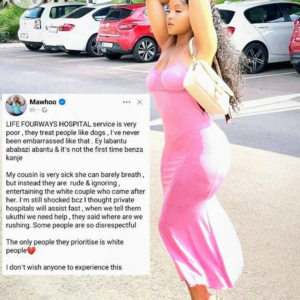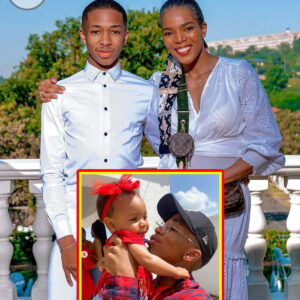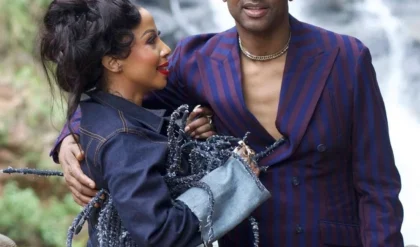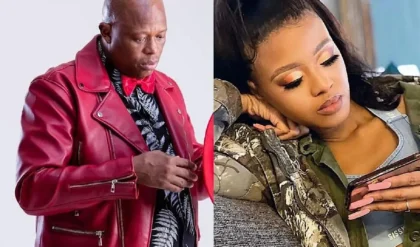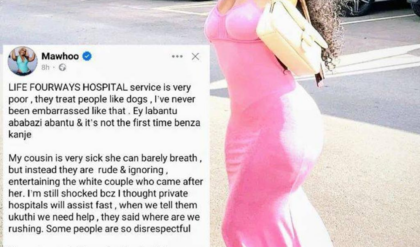In a recent and deeply revealing live session, President Gay, along with other representatives from the LGBTQ+ community, discussed the implications of Ino Maan’s recent revelations about his sexuality and faith.
The conversation, which unfolded on social media, addressed the complex interplay between identity, spirituality, and societal expectations, particularly within the context of being a public figure.
The discussion began with President Gay emphasizing the importance of understanding and supporting one another in the LGBTQ+ community. He acknowledged that Ino’s journey has sparked significant debate and brought a mix of reactions from both supporters and critics.

“We must recognize that these are public figures, and their experiences resonate with many,” he stated, encouraging viewers to approach the topic with empathy rather than judgment.
Ino Maan, who had previously been trending on various social media platforms due to his bold statements regarding his sexuality, expressed a mixture of relief and concern about the public’s reaction to his revelation.
He articulated the personal struggle he faced in reconciling his faith with his sexual identity. “It’s a journey that many in our community understand,” he said, highlighting the internal conflict that often accompanies such a public declaration.
During the conversation, the issue of biblical interpretations arose. Many attendees expressed confusion over the apparent contradictions between the messages of love and acceptance in the Bible and the verses that some use to condemn LGBTQ+ identities.

“The Bible is often weaponized against us,” one participant noted. “But at its core, it’s about love and acceptance.” This sentiment resonated with the group, as they emphasized the need for a more inclusive understanding of spirituality that embraces diversity.
The dialogue shifted to the challenges faced by those who identify as LGBTQ+ within religious communities. President Gay pointed out that while many people find solace in their faith, the societal pressures and stigmas can create a hostile environment for those who do not conform to traditional norms. “We must create spaces where everyone feels welcome, regardless of their identity,” he urged.
Ino Maan’s situation highlighted the broader issues of acceptance and understanding within both the LGBTQ+ community and religious circles. He shared his desire to live authentically while also seeking a deeper connection with God.
“My faith is important to me, but I also have to be true to who I am,” he explained. This balance is something many individuals in the LGBTQ+ community strive for, often facing backlash from both religious institutions and society at large.

As the discussion continued, it became evident that the participants were not only advocating for acceptance but also for a reevaluation of how religious texts are interpreted.
They called for a more compassionate approach to spirituality that recognizes the inherent dignity and worth of every individual, regardless of their sexual orientation. “We can love God and still be ourselves,” one participant asserted, emphasizing the importance of self-acceptance.
In conclusion, the live session featuring President Gay and Ino Maan served as a powerful reminder of the ongoing struggles faced by the LGBTQ+ community. The conversation illuminated the complexities of navigating identity and faith in a world that often demands conformity.
As they shared their experiences and perspectives, the group underscored the importance of love, understanding, and acceptance. By fostering open dialogues and challenging outdated beliefs, they aim to create a more inclusive environment for everyone, ultimately allowing individuals to embrace their true selves without fear of rejection or condemnation.
Video
News
MaWhoo Speaks Out on Poor Service at Life Fourways Private Hospital
MaWhoo Speaks Out on Poor Service at Life Fourways Private Hospital: Allegations of R@ci@l Bias South African media personality MaWhoo, known for her candid and outspoken nature, has recently made headlines by speaking out about the poor service she received…
Tyla flaunts her jaw-dropping figure in a tiny bralette as she dresses in head-to-toe Nike for the 2025 Super Bowl
Tyla turned up the heat with her racy outfit as she made her way to the 2025 Super Bowl in New Orleans on Sunday. The South African singer, 22, was dressed in head-to-toe Nike as she prepared to watch the Philadelphia Eagles take on the Kansas City…
ShaunMusiq and Thatohatsi Set to Release New Single “Phinde” This Friday
ShaunMusiq and Thatohatsi Set to Release New Single “Phinde” This Friday Exciting news for fans of South African music! The dynamic duo of ShaunMusiq and Thatohatsi is all set to drop their highly anticipated single “Phinde” this Friday. This collaboration…
Remembering Kiernan “AKA” Forbes: A South African Hip-Hop Icon
Remembering AKA: Two Years On Today marks a somber anniversary in the South African music industry as we remember the loss of one of its brightest stars, Kiernan “AKA” Forbes, who tragically passed away two years ago on February 10th….
Big Zulu’s New Helicopter: A Symbol of Success and Inspiration
Big Zulu’s New Helicopter: A Testament to Inspiration and Success South African rapper Big Zulu has once again made headlines, this time for an exciting new milestone in his life. The celebrated artist recently acquired a brand-new helicopter, a symbol…
Lasizwe: Ready to Embrace Fatherhood?
Lasizwe: Ready to Embrace Fatherhood? Lasizwe Dambuza, the popular South African social media personality and television presenter, has been making headlines recently with rumors swirling about his readiness to become a dad. Known for his vibrant personality and entertaining content,…
End of content
No more pages to load
